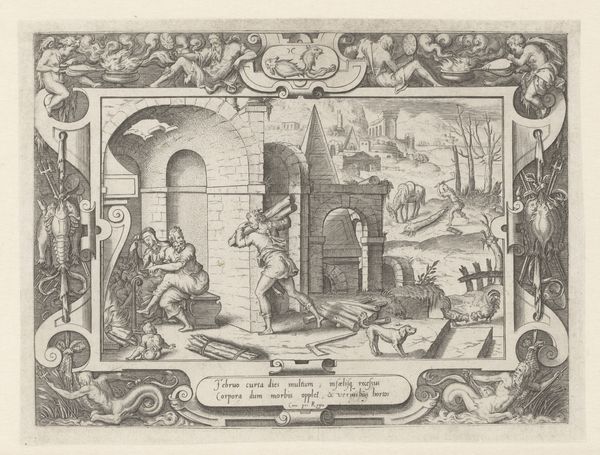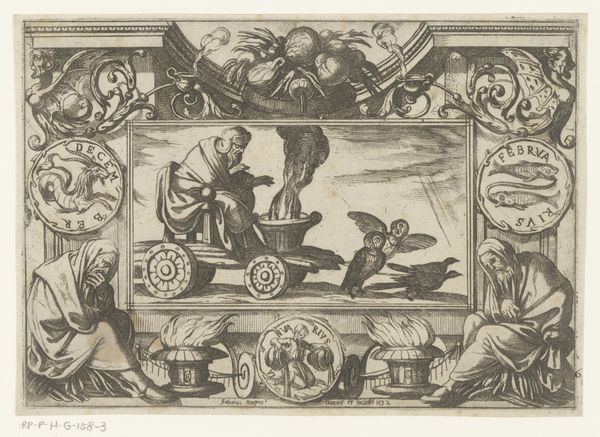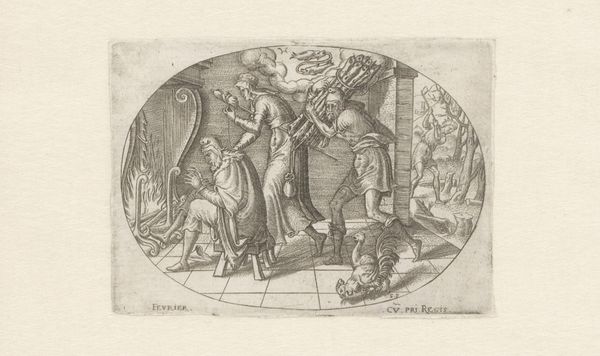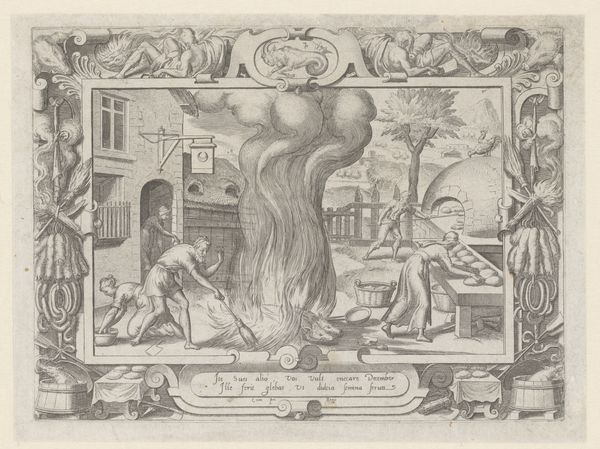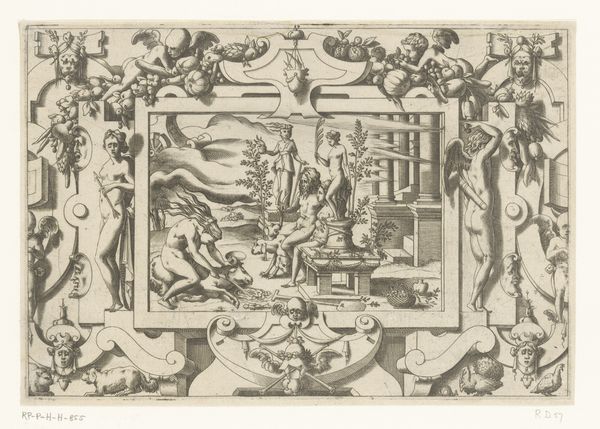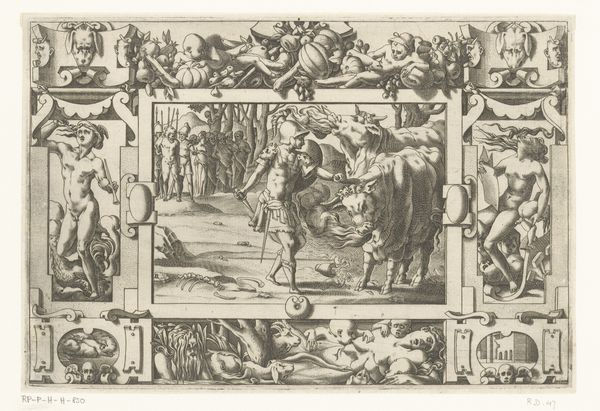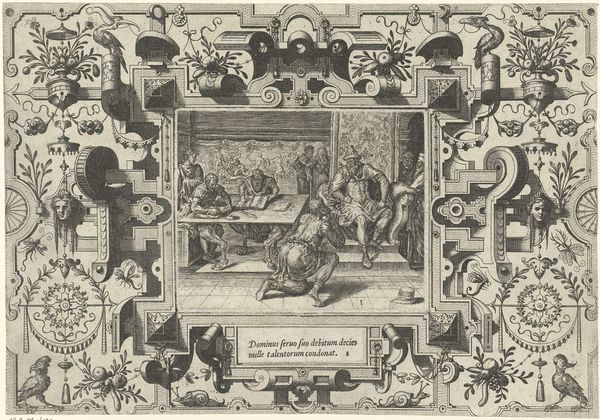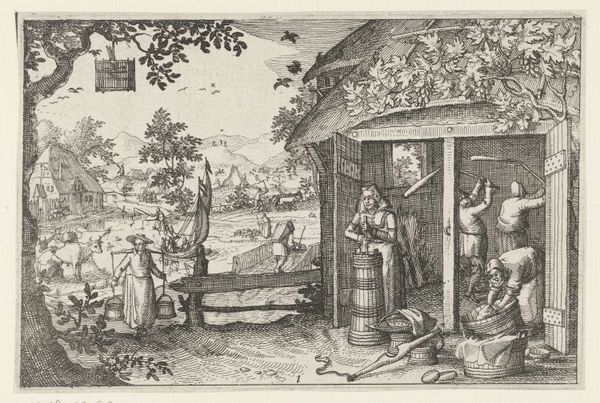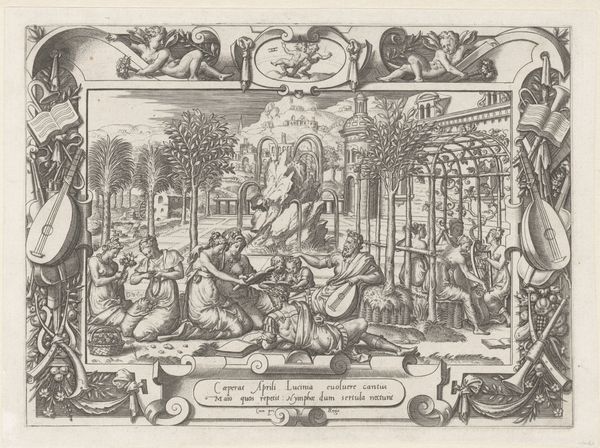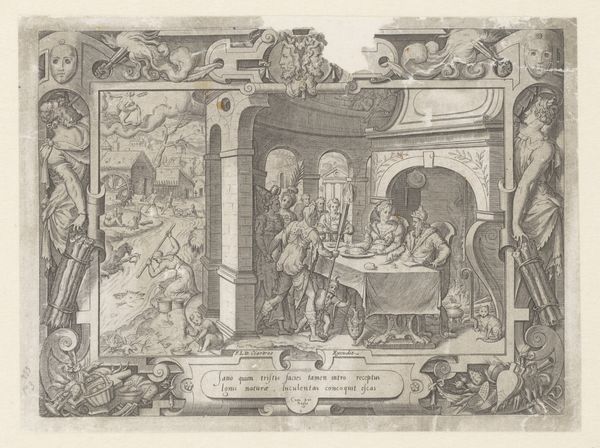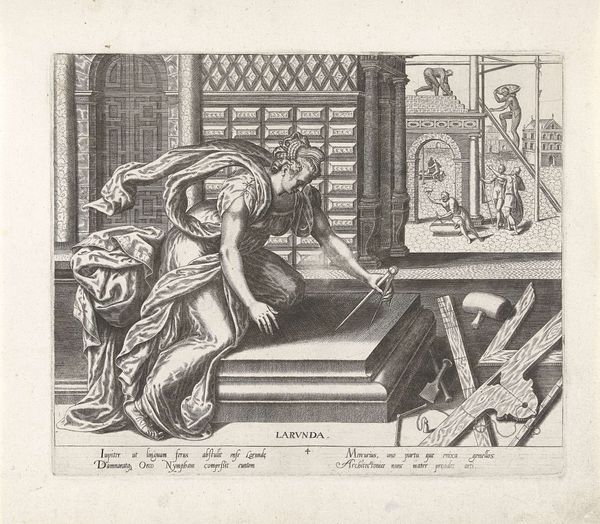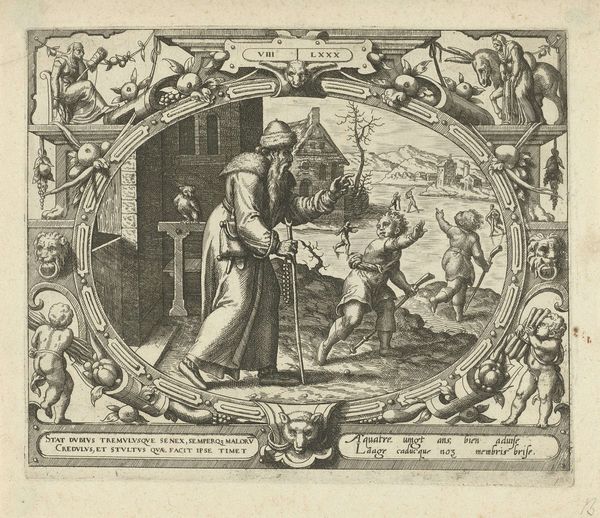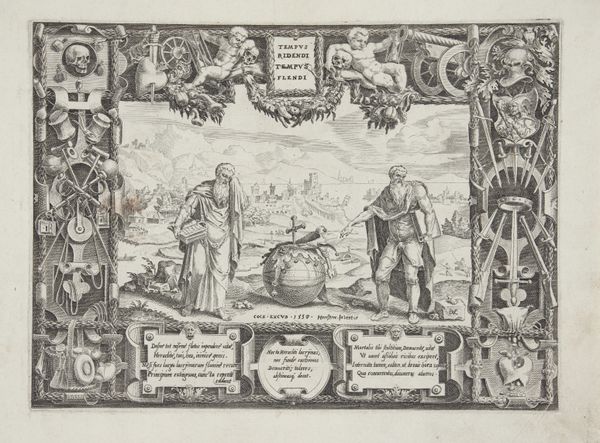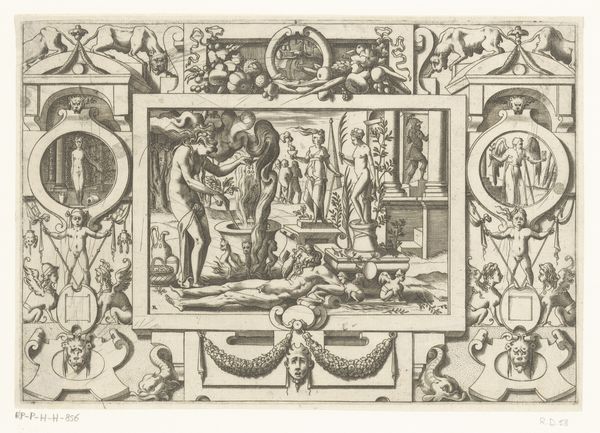
print, engraving
#
pen drawing
# print
#
pen illustration
#
pen sketch
#
old engraving style
#
landscape
#
11_renaissance
#
line
#
genre-painting
#
northern-renaissance
#
engraving
Dimensions: height 176 mm, width 238 mm
Copyright: Rijks Museum: Open Domain
Editor: This is "Oktober," made before 1566 by Etienne Delaune. It’s a detailed engraving currently held at the Rijksmuseum. What strikes me is how clearly it depicts the labor-intensive process of, presumably, winemaking. What do you make of it? Curator: Considering this engraving from a materialist perspective highlights the means of production depicted. Notice the labor divisions – some gather grapes, others tread them, still others manage the barrels. This isn't just a charming scene; it's a snapshot of early industrial practices and the communal effort required for resource transformation. Editor: So, it's not just about the final product, the wine, but about all the work? Curator: Precisely. Think about the materiality of wine production - the oak for the barrels, the grapes themselves. Delaune's work pushes us to consider the embodied labor transforming these raw materials. Furthermore, the printmaking process itself – the engraver's meticulous labor to produce multiple identical images - mirrors the organized labor within the image. How does the setting itself contribute? Editor: It feels self-contained. The grapes are gathered, processed, and presumably stored, all within the implied boundaries of this 'factory'. Is there a potential commentary on local trade and economies emerging from it? Curator: Precisely. It shows a community shaped by its resources, structured around this cycle of material transformation. And even though it's "art", we can examine it like an artifact from a manufacturing past. The transition to capitalist modes is mirrored here, a localized industry represented as ‘art’ . It blurs that high art/ craft line in the act of revealing early industrialized processes. Editor: This has totally reshaped my understanding of the print. Thank you for highlighting how we should understand it through production and labor! Curator: Indeed. By seeing it through that lens, we appreciate both the artwork and the insights into a long-gone stage of resource usage and industry development.
Comments
No comments
Be the first to comment and join the conversation on the ultimate creative platform.
